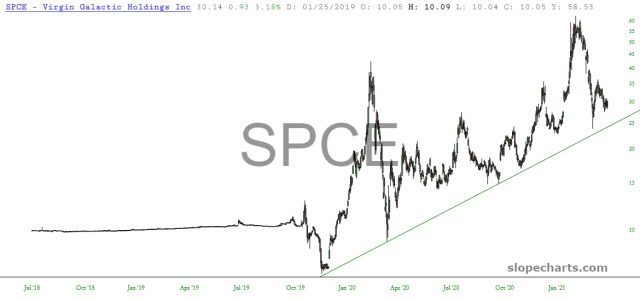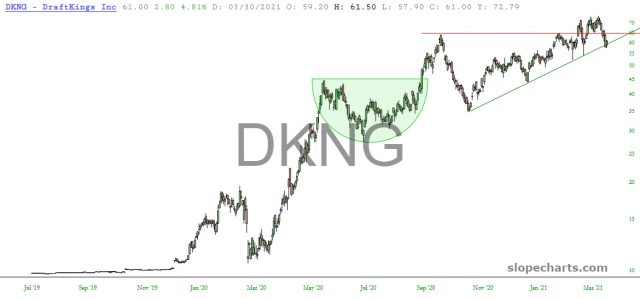Even just a couple of years ago, the notion that “blank check” companies (that is, publicly-traded shell corporations with no business, no revenue, no earnings, and no real purpose) would be one of the most popular vehicles for taking a company into the public markets would have been seen as laughable, if not scandalous. We live in wacky times, however, so Space Purpose Acquisition Corporations (SPAC) stocks have been all the rage.
Having seen what appears to be a very typical pattern among these stocks – – I would like to suggest a new definition to the acronym:
Scrutiny
Precludes
Ailing
Corporations
Because any legitimately promising organization has to go through the travails of a lengthy road show and all the deep examination of investment banks and the buying public before they achieve what so few private companies achieve, which is to become a public-traded financial instrument. The “back door” that the SPAC provides allows sub-par companies to do the same thing without the discomfort of prying eyes.
As the examples below illustrate, it seems to me SPAC stocks are virtually guaranteed to be bad long-term investments since, even in this absurdly-supportive environment, the pathway tends to be:
- Almost no volume at all during the pre-acquisition time;
- An actual acquisition, at which time the stock rockets higher, perhaps for months;
- A stalling-out or high-volatility period, in which the rocketing stops and the gyrations begin;
- The crash.
I offer for evidence (and it didn’t take long to find these):
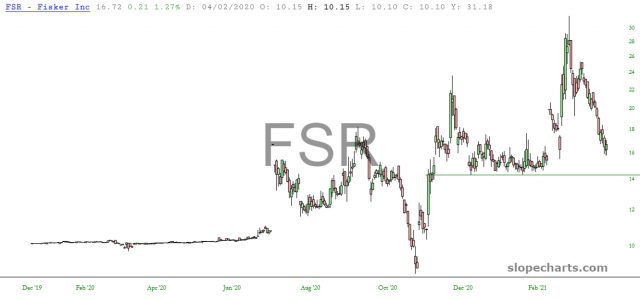
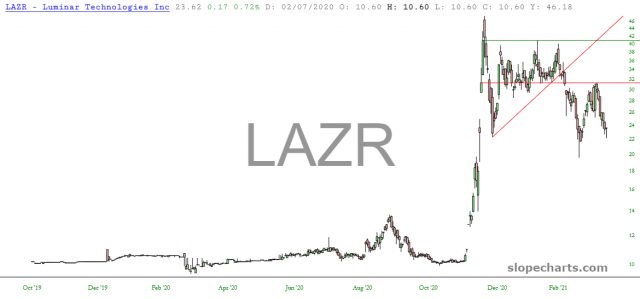
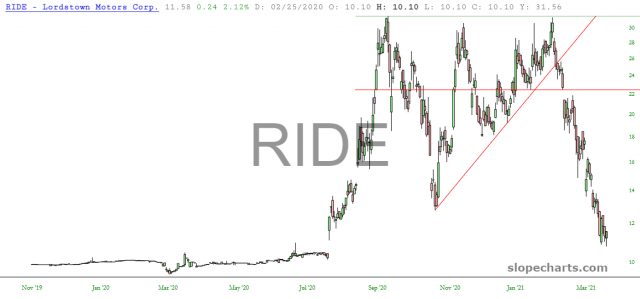
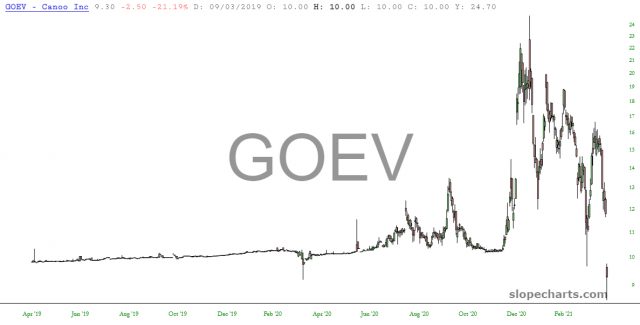
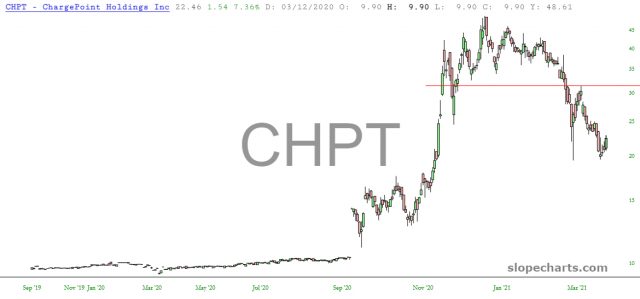
There are exceptions, of course, as the two items below illustrate. But these are definitely not the norm.
